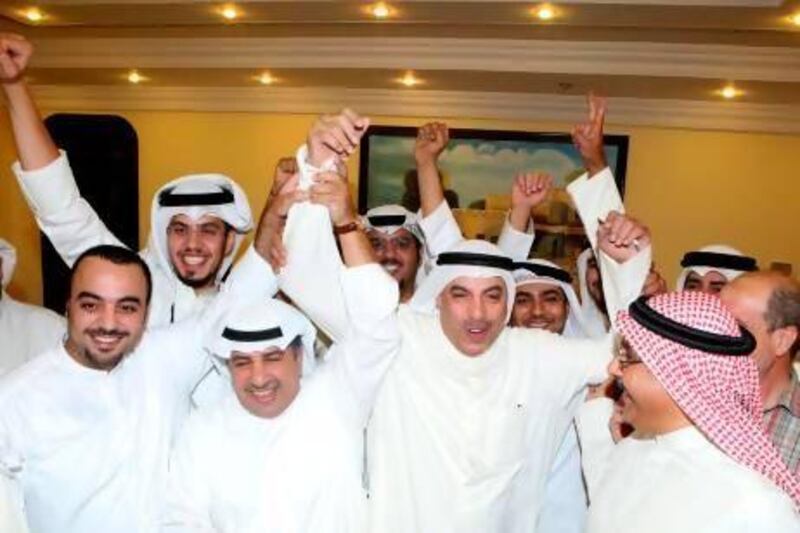Kuwait's election result has rekindled optimism about the delivery of a stalled US$105 billion economic development plan.
The investment, which includes housing, hospitals, education and other infrastructure, is considered vital to helping Kuwait's nascent non-oil sector catch up with other parts of the GCC.
"The policy paralysis we have seen has been the main hindrance to Kuwait pursuing its long-term development plan," said Jean-Paul Pigat, an economist at Emirates NBD. "With the opposition having boycotted the vote their ability to disrupt policy may be reduced so it is potentially more positive for the economy."
Liberal and tribal alliances made the biggest gains at the expense of Shiite opponents in the sixth legislative elections since 2006, held at the weekend.
Frequent political fighting between an elected legislature and the cabinet, appointed by the prime minister, has often hampered the approval of projects tied to the $105bn plan, which was unveiled in 2010. Political upheavals and bureaucracy have also been blamed for the inaction.
The plan includes a metro, railway and other multibillion-dollar projects such as Silk City, an urban area in Kuwait's north, and the Subiya Causeway, a 36-kilometre link between the southern port of Shuwaikhand the north of the country, close to the Iraqi border.
Some progress, however, has been made in the past year. South Korea's Hyundai Engineering& Construction is due to start building the $2.6bn causeway later this year and a contract has also been handed out to build the Az Zour gas-fired power and seawater treatment plant. But economists say Kuwait's pace of overall development still trails the UAE and Qatar.
Much also rides on the longevity of the new parliament. The latest elections followed a court ruling last month that parliament should be dissolved because of a technical issue leading up to last December's elections.
"We have to remain cautious. Given the experience of the last few years we need to see proof that the new parliament is really making a difference before we start to change our expectation," said Simon Williams, HSBC's chief economist in the Middle East and North Africa.
"It's very important that Kuwait shows it is serious about broadening its economic base and changing the nature of the economy away from oil before we start to revise our low expectations."
HSBC is forecasting growth at 3 per cent this year, the same rate of growth expected by Emirates NBD.
About half of Kuwait's economic growth comes from the oil sector, with petroleum goods accounting for about 80 per cent of government revenue.
The urgency of diversification efforts was underscored in May after the IMF warned Kuwait it risked running out of oil revenues as early as 2017 under its current spending policy.
Much of the existing budget is eaten up by public-sector wages, pensions and other social expenditure. The fund urged the government to instead focus on improving infrastructure and the investment environment.
A crucial cornerstone of the economic development plan is the engagement of the private sector. When details of the plan emerged three years ago, the government said it was seeking to pursue public-private partnerships to build low-cost housing, hospitals and universities and colleges.





